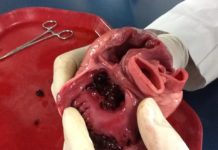
Depression is a result of the activities of many genes, scientists report; findings may help future diagnosis and treatment
Nearly 80 genes that could be linked to depression scientists, from University of Edinburgh have reported in a study in Nature Communications. The findings could help explain why some people are at a higher risk of developing the condition. The study could also help researchers develop drugs to tackle mental ill-health, experts say.
The World Health Organisation estimates: “India is home to an estimated 57 million people (18% of the global estimate) affected by depression. With India witnessing significant changes (including globalization, urbanization, migration, and modernization) that is coupled with rapid sociodemographic transition, depression is likely to increase in the coming years.” Depression is ranked as the largest contributor to global disability affecting 322 million people.
The researchers said: “Depression is, however, a heterogeneous condition and to gain greater insight into its subtypes, larger studies are likely to be necessary to improve diagnosis, treatment and patient outcomes. This approach might only be possible with relatively easy-to-recruit, large, population-based self-declared cohorts, supplemented where feasible with additional clinical and biological data.”
“India is home to an estimated 57 million people affected by depression. with rapid sociodemographic transition, depression is likely to increase in the coming years.”
For the study they analysed data from UK Biobank – a research resource containing health and genetic information for half a million people. They scanned the genetic code of 300,000 people to identify areas of DNA that could be linked to depression.
Some of the pinpointed genes are known to be involved in the function of synapses, tiny connectors that allow brain cells to communicate with each other through electrical and chemical signals. The scientists then confirmed their findings by examining anonymised data held by the personal genetics and research company 23andMe, used with the donors’ consent.
Professor Andrew McIntosh of the University of Edinburgh’s Centre for Clinical Brain Sciences, who leads the Edinburgh-based research group, said: “Depression is a common and often severe condition that affects millions of people worldwide. These new findings help us better understand the causes of depression and show how the UK Biobank study and big data research has helped advance mental health research. We hope that the UK’s growing health data research capacity will help us to make major advances in our understanding of depression in coming years.”












